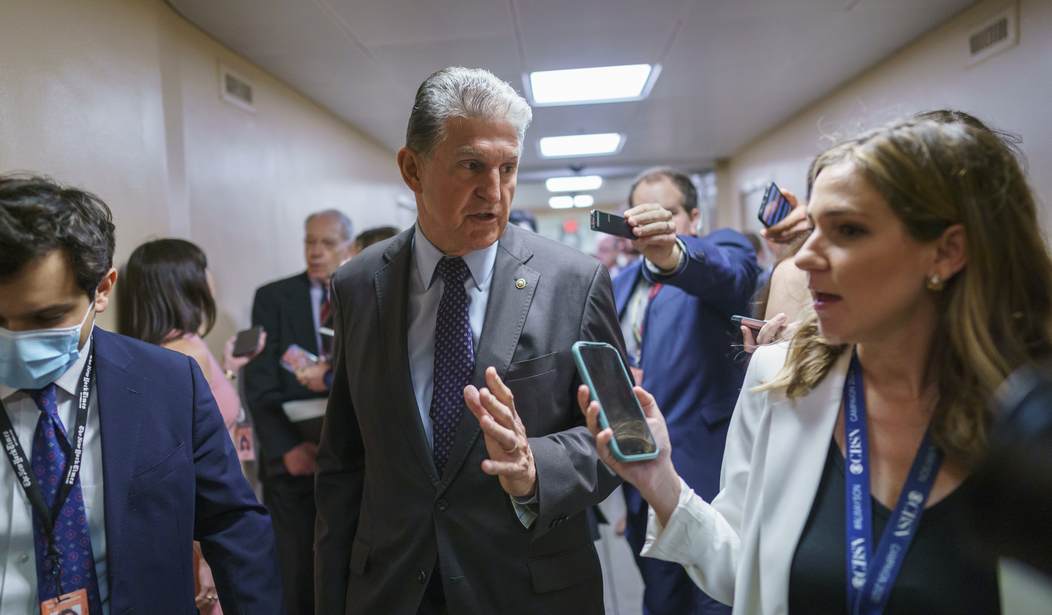Senators Joe Manchin and Kyrsten Sinema are probably the two most hated politicians by progressives, other than Donald Trump. They're usually the Democrats who have torpedoed major pieces of liberal legislation. Both are not budging on the filibuster. Yes, Manchin voted to open the floor to debate the Democrat's election overhaul bill, but he did so knowing it wouldn't get 60 votes. Sinema also reiterated her position to not nuke the filibuster. Manchin also said he wouldn't back a Democrat-only infrastructure bill. You could see why the progressive Left wants to clip these two.
So, let's say the legislative filibuster is nuked; who will it benefit long-term? RealClearPolitics' Sean Trende did a deep dive into the war over this procedural tool, and overall, he notes that both senators could be doing their party a favor. They're the canaries in the coal mine. All you must do is open the history books to see that Republicans win a lot of elections and are more likely than Democrats to clinch the trifecta of unified government. Trende notes that even if Puerto Rico and Washington, DC, are added as states, the Senate's tilt isn't enough to secure the legislative wins Democrats think they can achieve with more representative muscle.
Also, Puerto Rico has elected Republicans before statewide—multiple times. It's not a slam-dunk for two extra Democratic senators (via RCP):
First, Republican trifectas—control of both chambers of Congress and the White House—are more probable than Democratic trifectas, suggesting the GOP will be able to use its future majorities to push through favored legislation more frequently than will Democrats, absent a filibuster. Much ink has been spilt on the Republican geographic advantage in the House, which exists even without intentional gerrymandering. The Senate and Electoral College have likewise presented Republicans with a leg up on Democrats over the past 30 years. Even before 1992, when Democrats likely had an edge, the true edge went to conservatives, who could bottle up liberal legislation except in extreme cases.
For some quick back-of-the-envelope math, in the past 30 years Republicans have won the presidency in three of eight elections. They’ve won the House in two-thirds of the elections, and 60% of Senate elections. If this is the baseline expectation for GOP chances of holding those chambers, it translates to Republicans having the trifecta about 15% of the time. Democrats would get the trifecta about 8% of the time.
[…]
In the House, let’s assume that the various “partisan fairness” metrics in H.R. 1 bring the House majority roughly in line with the popular vote. This still translates to a Republican advantage over the course of the past decade. Republicans lost the popular vote but held the House just once in the past 30 years (2012); 1996 is disputed and depends on how you account for unopposed seats and runoffs.
If we call 1996 a draw, you end up with Republicans winning the House 57% of the time over the course of the past three decades with “partisan fairness” metrics in place. Even assuming that Republicans really would be expected to win the presidency only 37% of the time, that still works out to them having a trifecta slightly more frequently than Democrats.
[…]
…there are things that Republicans would very much like to accomplish absent the filibuster; many of these things would not be so unpopular as to be automatic majority-killers. A reasonably-sized Republican majority would probably pass a waiting period for abortion on the national level, as well as a parental consent law. They may be able to push through a ban on abortions after 20 weeks. We would probably get a national photo identification law, and perhaps some regulation/rolling back of same day registration, absentee balloting, and early voting.
The real dangers for Democrats, though, are a number of things Republicans could pass that would damage internal Democratic Party messaging and fundraising. This is also an asymmetric risk, as the organizations that support the Republican Party tend to be more ideological, and harder to constrain given the First Amendment.
Consider labor unions. In 2020 eight PACs donated more than $2.5 million to candidates and gave 60% of those dollars to Democrats; they all represented labor interests. A Republican trifecta could pass a national right-to-work law, neutering an important conduit for information between Democrats and their working-class supporters in the North and Mountain West.
[…]
Regardless, if one holds the principled position that the filibuster should be eliminated, and held it even during Trump’s presidency, then yes, Manchin deserves the condemnation he is receiving. If, however, one supports eliminating the filibuster mostly because one favors progressive priorities, Manchin (and Arizona’s Kyrsten Sinema) are probably doing you a favor.
Recommended
The point here is that this debate is loaded with nuance that neither side wants to consider. In short, Trende notes that chaos would ensue as both parties would enact sweeping changes every six to eight years under a unified government. He doesn't think that the nation could handle the legislative whiplash, and he's probably right. What good is a short-term progressive goal if the GOP could erase it just as quickly with no filibuster? You'll get an entire agenda wrecked in less than a decade's time, all for the price of more drama on the Hill. Voters are increasingly cynical about Washington. This would douse that narrative in gasoline.

























Join the conversation as a VIP Member